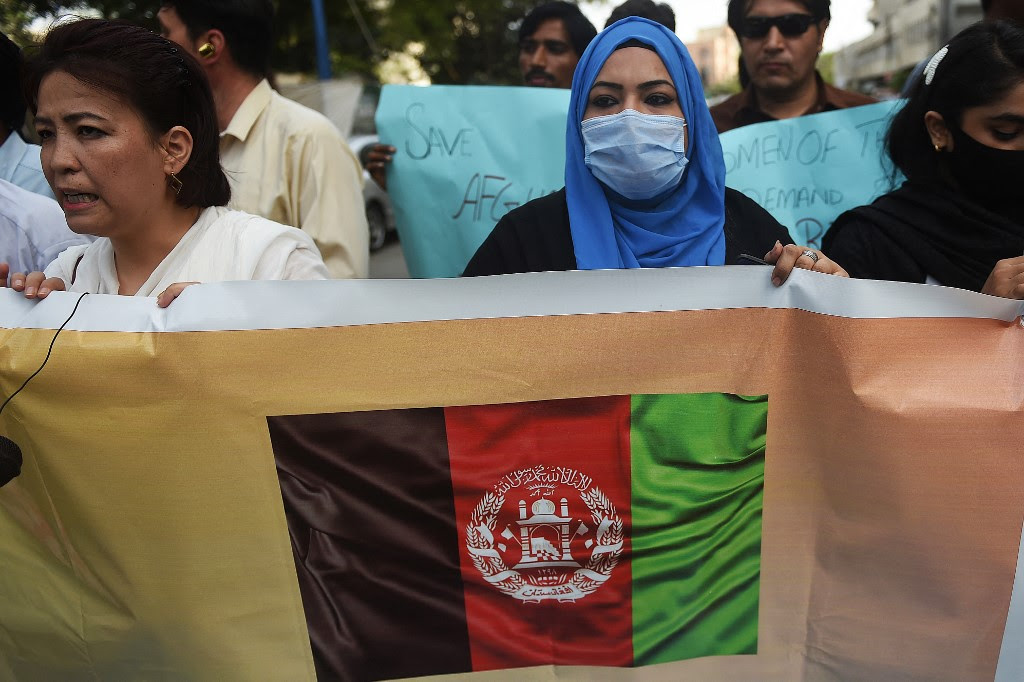Afghanistan: Anger that so many journalists abandoned
As US troops prepare to leave Afghanistan on August 31 2021, the International Federation of Journalists (IFJ) and its affiliates continue to help journalists and their families out of the country and provide support on the ground. IFJ Deputy General Secretary Jeremy Dear, who has been co-ordinating the federation's emergency response to the situation in Afghanistan tells us about the latest attempts to evacuate colleagues, the fantastic solidarity among world journalists and a sense of powerlessness at times. 
Together with IFJ team and affiliates on the ground you have been helping our colleagues in Afghanistan move to safe houses or leave country.
What is the general feeling at the IFJ at the moment?
JD: There is a sense of anger that so many journalists and human rights defenders are being abandoned during the evacuation process, a sense of determination to work as hard as we possibly can to secure more visas and get more people in danger on flights, a sense of powerlessness at times when we see and hear the despair of our colleagues, a sense of incredible pride at the way journalists unions have rallied to help our colleagues. It is a mixture of all those emotions.
Over 100 000 persons have been evacuated from Afghanistan since 14 august. How many journalists and their families was the IFJ able to help so far?
JD: It is just not possible in the chaos to do a final tally of those helped - but the reality is that without the efforts of the IFJ and its affiliates in many countries many more journalists would be trapped in Afghanistan. It is not just those we have helped to leave the country but also the assistance being provided by our unions on the ground in Afghanistan because most of the journalists will not have the chance to leave or do not want to leave. We must not forget them and help develop ways to support their struggle for media freedom and rights under the Taliban.
Once journalists are evacuated to a foreign country what happens to them?
JD: It depends. Some have visas and have been evacuated under a resettlement scheme and can begin the process of starting a new life. Many more have just got out and are now beginning the process of applying for visas or the right to remain in other countries. The evacuation is not the end of the matter but the start of a new process. That is why it is still important for our affiliates to ask their governments to issue more visas so we can help those who have temporary refuge somewhere to relocate. That is when we need to work out how we provide food, shelter, living expenses.
With the terrible terrorist attacks that took place yesterday, what is our message to colleagues who are trying to escape the country?
JD: To listen to the advice on the ground and to stay safe. But that is easy to say from the comfort of Western Europe. The messages I receive day and night by email and whatsapp speak of the desperation and fear many feel. They are willing to risk everything to escape. Despite the attacks there are still some final evacuation flights and our priority for the next 36 hours is to get as many as we can on those flights.
On August 31, US troops will stop securing the airport. Taliban claim those who want to leave can still do so. Will journalists take that risk?
JD: After August 31 we will enter a new phase. Some land borders will reopen, some commercial flights will resume and there will still be journalists who seek to leave. We need to be ready to help those who we can.
The IFJ has raised over 33000 euros via its Safety fund so far. How has it been used?
JD: It has been an incredible response made up of hundreds of donations from individual journalists and union branches. Donations are still coming in all the time. The funds are earmarked to support our affiliates in Afghanistan and Pakistan provide safety and support to those who are internally displaced, without work or who need emergency assistance. We are negotiating with governments to secure more funds to run safe houses. Some of those who have fled have been able to get to one country but then need support to get to a country they have a visa for and those cases are also being considered. For now it is emergency humanitarian assistance but there will be ongoing needs for many months and years, so we are developing a longer term strategy to help.
August 27 2021